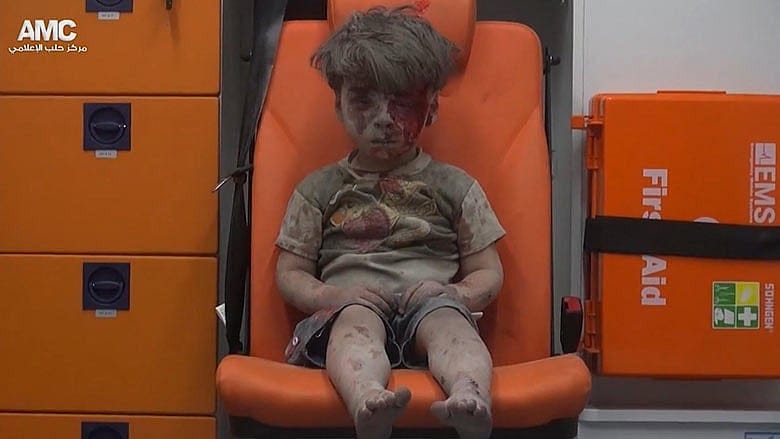Syria’s continuing humanitarian disaster seen in child’s face

(CNSNews.com) – As the United States, Russia and the rest of the international community continue their Syrian ceasefire discussions, the slaughter of civilians continues in Aleppo, with Russian jets unloading bombs over the city again this week.
On Wednesday, a five-year-boy became the face of the worsening humanitarian disaster, as he was videotaped climbing into an ambulance in Aleppo, his face bloodied. A still photo from that video, printed Thursday in British newspapers, comes from the Aleppo Media Center, which said the boy was inside a building hit from the air on Wednesday.

